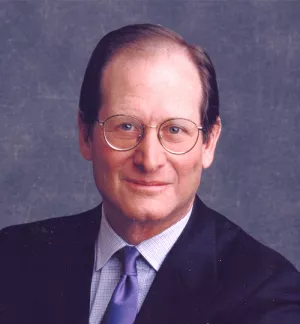Since Anwar Sadat succeeded Gamal Abdel Nassar in 1970, Egypt has had episodic waves of economic liberalization, but without comparable phases of political reform.
These periods of economic change occurred:
- in the "infitah" (opening up) of the 1970s with initiatives in free trade, foreign investment, and market economics after Nasser's Arab socialism;
- in extensive "privatization" of state-owned enterprises in the 1990s; and
- in the rise of a "liberal capitalist elite" during this decade which promoted private sector activity through fiscal and monetary policy and through sectoral reforms in such areas as banking, finance, real estate, transportation, telecoms, and health care.
The new liberal capitalist elite was associated with Hosni Mubarak's son, Gamal, his presumptive heir apparent who spent time as a banker in London and became a power in the ruling National Democratic Party (NDP). Unlike Nassar, Sadat, and his father, he had no history of military service. The revolt may have been against Gamal almost as much as Hosni.
The political economy of Egypt is as important as its constitutional and political system.
Throughout this forty-year period of start-stop economic reform, there was, however, no meaningful reform of the constitutional structure and the political system.
A closed, unaccountable polity led, in Tahrir Square, to the cries for freedom, demands for constitutional change and insistence on legitimate governmental institutions. The headlines and TV scenes showed vast numbers of Egyptians denouncing the regime as illegitimate: autocratic executive rule, a supine legislature, suppression of dissent by the powerful state security apparatus, the arrest and torture of regime opponents, the dominance of one party, rigged elections.
But, although less clear in the sound bytes, so, too, many Egyptians viewed the economic system as illegitimate, imposed upon them by corrupt and profligate elites for their own benefit and not affirmed through transparent processes secured by societal consensus. Although the economic reforms of the last decade led to sharp increases in foreign direct investment (after years of stasis) and jumps in GDP growth (over 7 percent in 2008), they did not address, and were seen to have exacerbated, the deep-seated problems of poverty (20 percent of the population), unemployment (nearly 10 percent) and inflation (about 12 percent in consumer prices, including food, in 2010).
The severe deficits in both political and economic legitimacy are explicated in the prescient book Egypt on the Brink (Yale University Press, 2010), written by an Egyptian businessman and columnist, Tarek Osman, and published in English last November. Osman, and other writers on the Egyptian economy, have highlighted its many cross-currents. In schematic fashion, these include:
- The conflict between the liberal elite capitalists, with their tentacles reaching into all sectors of the economy and the military elite, with direct, if opaque, ownership of economic enterprise and comfortable post-service commercial sinecures.
- The companion conflict between ideas of "free market or neoliberal capitalism" from Western-trained economists and businesspeople and a command economy that subsidizes stables such as bread, rice, and sugar as part of a social safety net and which remains popular among the public and large swaths of the military, according to Jon Alterman, former member of the State Department's Policy Planning Staff and director the Middle East Program at the Center for Strategic and International Studies.
- The conflict between the public sector "middle class" that is paid far less than the "private-sector" middle class and which is being squeezed by inflation and the need to streamline a creaky bureaucracy (roughly one-third of the 25 million work force is employed by the government).
- The conflict between the poor/unemployed and the rich who have a disproportionate share of Egypt's wealth and who have not lent their influence to creation of a strong social safety net.
- The conflict between the "young" -- 45 million Egyptians under 35 years of age (whether poor or professional) -- and those who control the economy through what the young regard as corrupt and non-meritocratic means, a subject Osnan's book handles especially well.
- Between the socialist/social justice orientation of some Islamists, wary of the West, and Egyptian capitalism in its various forms.
Although the media have recently refocused on protests and conflicts arising in other Mid-East nations, the post-Mubarak transition, now not the stuff of front-page stories, is of surpassing importance to the future of the region. This transition will involve both a revision of the constitution to increase legitimacy and formation of a government after new elections, which will seek to adopt social and economic policies with greater transparency and wider acceptance.
Such a transition may seek -- but may fail -- to find a balance both in constitutional change and political reform between the political factions -- left and right, secular and religious, Christian and Islamic. And those building a new constitution and those then forming a new government may also seek -- but may fail -- to chart a course between equity and efficiency. Already, the military has forced economic reformers out of the cabinet and detained members of the liberal capitalist elite while freezing their assets. So the politics of legitimating an economic course for Egypt has many pitfalls precisely because of the conflicting economic interests and visions.
- Populism could lead to increased state subsidies (fuel, food, housing) for the poor and the stretched middle class, but increase the role of the state, add to the already large deficit and stifle growth.
- Growth must be 10 percent a year for the next decade to create the 9.4 million jobs necessary to address current unemployment and the new entrants into the labor market, according to the IMF. Yet liberal economic policies -- including promotion of Foreign Direct Investment -- which have stimulated growth in recent years may lack credibility because, as in the past, not only may the elites take a disproportionate share of wealth creation but because the benefits of the market may not promptly or directly reach the poor or the public sector middle class (indeed, may cause short term harm).
- Command-and-control state capitalism may perpetuate the large, unresponsive bureaucracies which have bedeviled Egyptians for generations -- and may maintain or grow the budget deficit and not foster and sustain modern, innovative private economic institutions.
- Open, transparent government may expose numerous past conflicts of interest (including those relating to the military and its retired officers). A new government may pursue legally many in the economic elite on grounds that they attained their positions through corrupt means. This appears likely for some members of the liberal capitalist elite. Less clear is whether the military -- historically shielded from close scrutiny and currently popular because of its restraint during the protests -- will be subject to corruption inquiries for its business dealings and the commercial activities of its retired officers.
In sum, this interplay between legitimating the Egyptian polity and legitimating the Egyptian economy is complex and uncertain. The political economy of Egypt is as important as its constitutional and political system. But, as in other developed and developing nations, sometimes the emphasis is on politics, not economics, and sometimes on economics, not politics. Finding the right balance of political legitimacy, a social safety net, economic growth, and a right-sized role for government is elusive everywhere.
It is likely to be no different in an Egypt struggling for a new way forward, but it will be singularly important as a new Middle East seeks to be born.
Heineman, Ben. “Egypt's Quest for Economic (Not Just Political) Legitimacy.” The Atlantic, February 28, 2011



